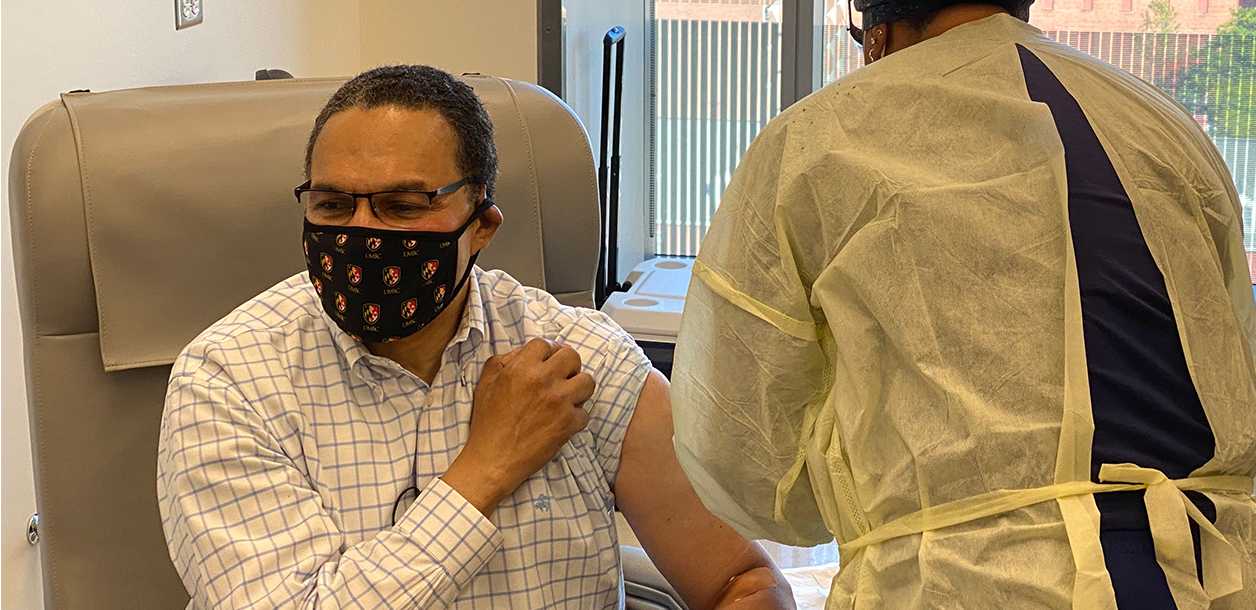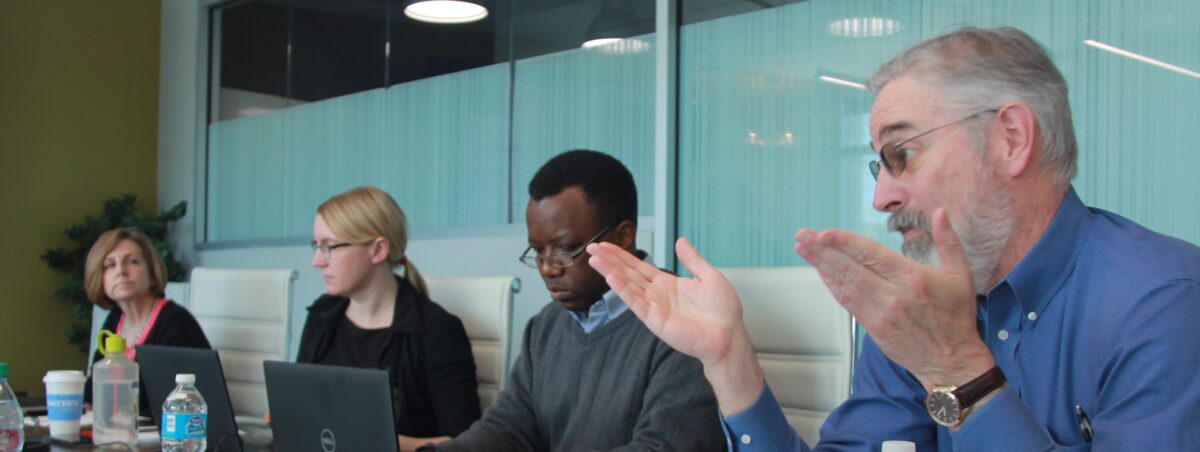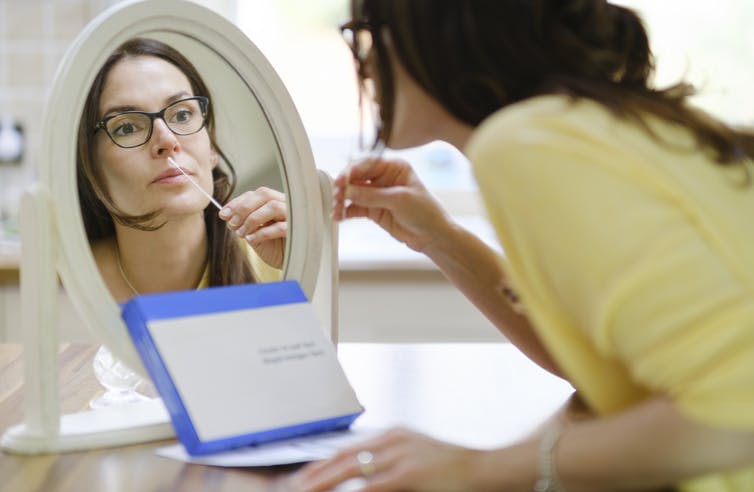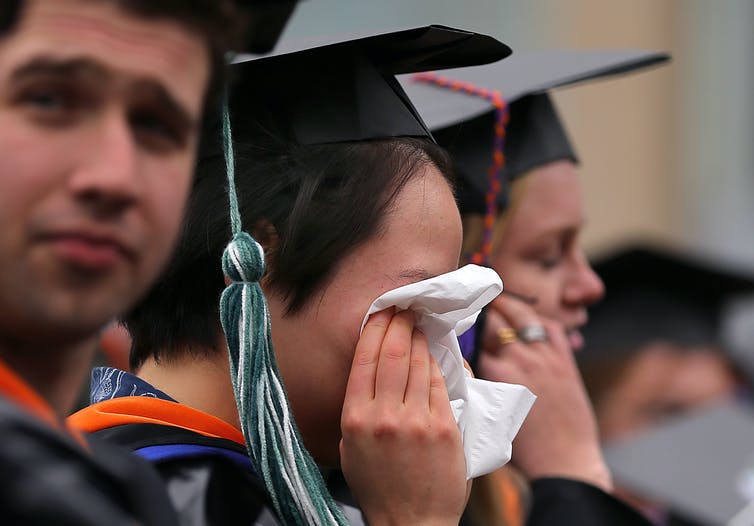UMBC President Freeman Hrabowski and his wife Jackie recently volunteered to take part in a 25-month clinical trial of the COVID-19 vaccine invented by alumna Kizzmekia Corbett ’08, M16, biological sciences, with her team at the Vaccine Research Center at the National Institute of Allergy and Infectious Diseases. We talked with the Hrabowskis to learn more about why being a part of this historic trial is so important to them both.
UMBC Magazine: Why did you decide to volunteer for this trial?
Jackie Hrabowski: Well, it’s for a couple of reasons, starting with the fact that this pandemic has affected minorities, and African Americans specifically, more directly than most. And so, it’s important for us to be represented in the solution. If we’re looking for cures, we need to be involved and to be able to step up to that, despite all of the fears. The second reason, of course, is that the person who is developing this vaccine is a UMBC alum, and we’re very proud of her. And we always believe in supporting our students. We know that they’re the best at whatever it is that they decide to do. So those are the primary reasons…but I also think we need to be role models and walk the talk. If we say it’s important to do this, we need to be able to demonstrate it through our actions, not just with our words.
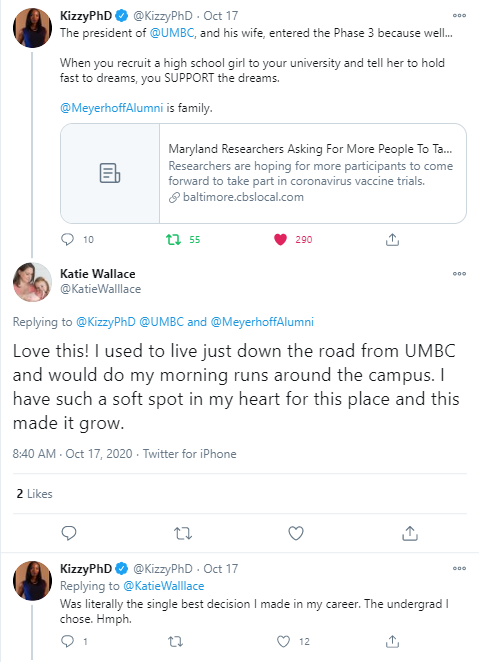
Freeman Hrabowski: Exactly. We’re seeing people of color and particularly African Americans dying at higher proportions, higher rates than anyone from this disease right now. And we need to help find the solutions. And right now the vaccine our alumna Kizzmekia Corbett has developed is very promising. And, as Jackie says, of those to whom much is given much should be required. And we feel very fortunate to be in that position right now. I have been the beneficiary of so much support from so many people that we want to do our part during this time.
And of course many Black people will say, yeah, but we know about these studies. I grew up with Tuskegee study. So, I recognize the prejudice that was shown and the abuse by the medical and scientific community towards Blacks in the past. But the question is, what do we do now? Right now we need this vaccine for everyone. And the encouraging news is that we can see people of all races involved in the development and the implementation of this plan for this vaccine.
UMBC Magazine: You both clearly understand how important it is to set a good example.
Jackie Hrabowski: It’s like the story of my dad growing up in rural Virginia. He and my mom were always out in the community helping people. We didn’t have a lot of money, but it was about giving our time and our effort…and supporting people as much as we can. And growing up, I was always there in the background, running with him, taking somebody somewhere, giving them something. And so as I got to be a little older…I asked my dad, why do we have to always be the ones going and taking people and doing things for people? And he looked at me, and he just quietly said, “Because we can.”
Freeman Hrabowski: I just love that…. It just gives me goosebumps. And you know, there are certainly a lot of limitations about things that we can’t do. We often don’t do as much as we can…but this is a time when we, as human beings, have a responsibility to step up to the plate for the public good, for the common good. This is the time when we need to be focused on people beyond ourselves.
*****
Retrievers are on the front lines of COVID-19 research.
UMBC faculty and alumni have been putting their expertise to use since the beginning of the pandemic. In addition to Kizzmekia Corbett’s vaccine work, Kaitlyn Sadtler ’11, biological sciences, is orchestrating a 10,000-participant study at the National Institutes of Health to look for antibodies to SARS-CoV-2 in volunteers’ blood, allowing the research team to estimate just how many people have been infected across the country—whether they had symptoms or not.
Zoë McLaren, associate professor of public policy, writes about how COVID-19 cases are surging upward around the U.S. but rapid testing might allow a turnaround by a massive scale-up of testing. Katherine Seley-Radtke, professor of chemistry and biochemistry, chimes in her expertise to explain what makes some drugs work against viruses and how others aren’t effective treatment of SARS-CoV-2.
Header image and video courtesy of the University of Maryland School of Medicine. Learn more about volunteering for the clinical trial.

